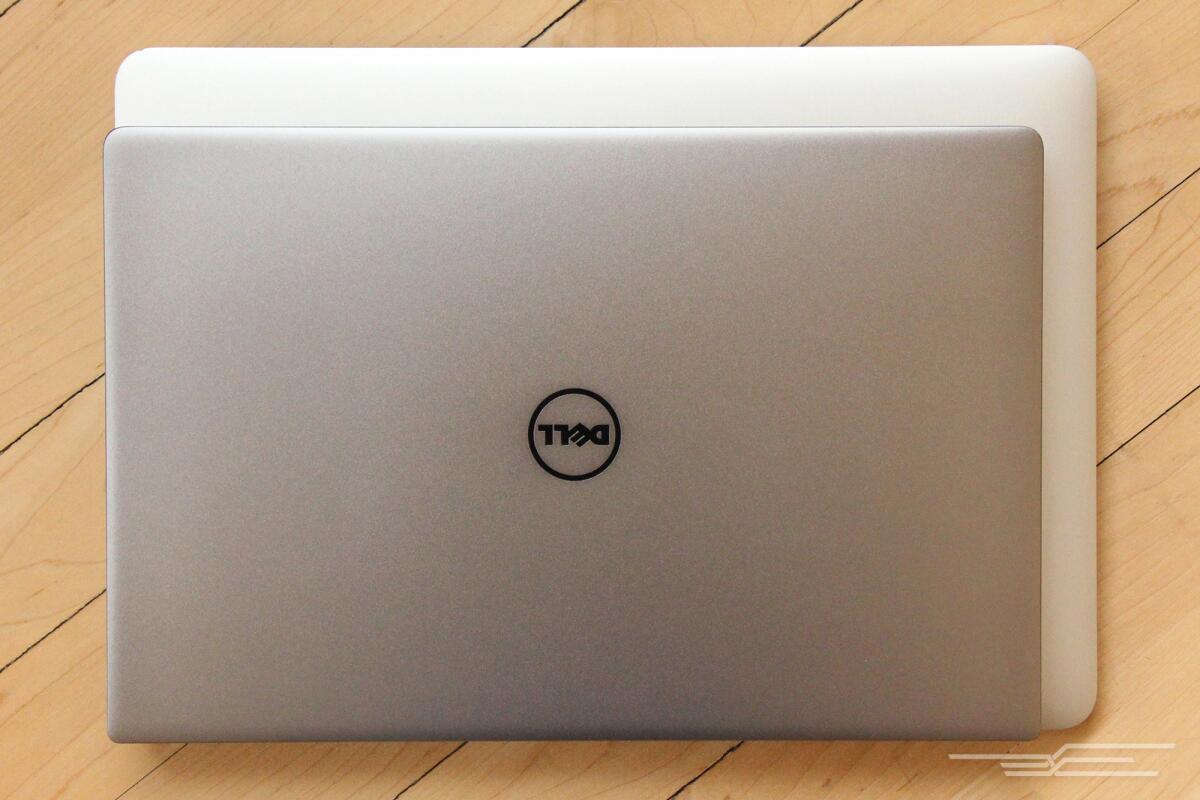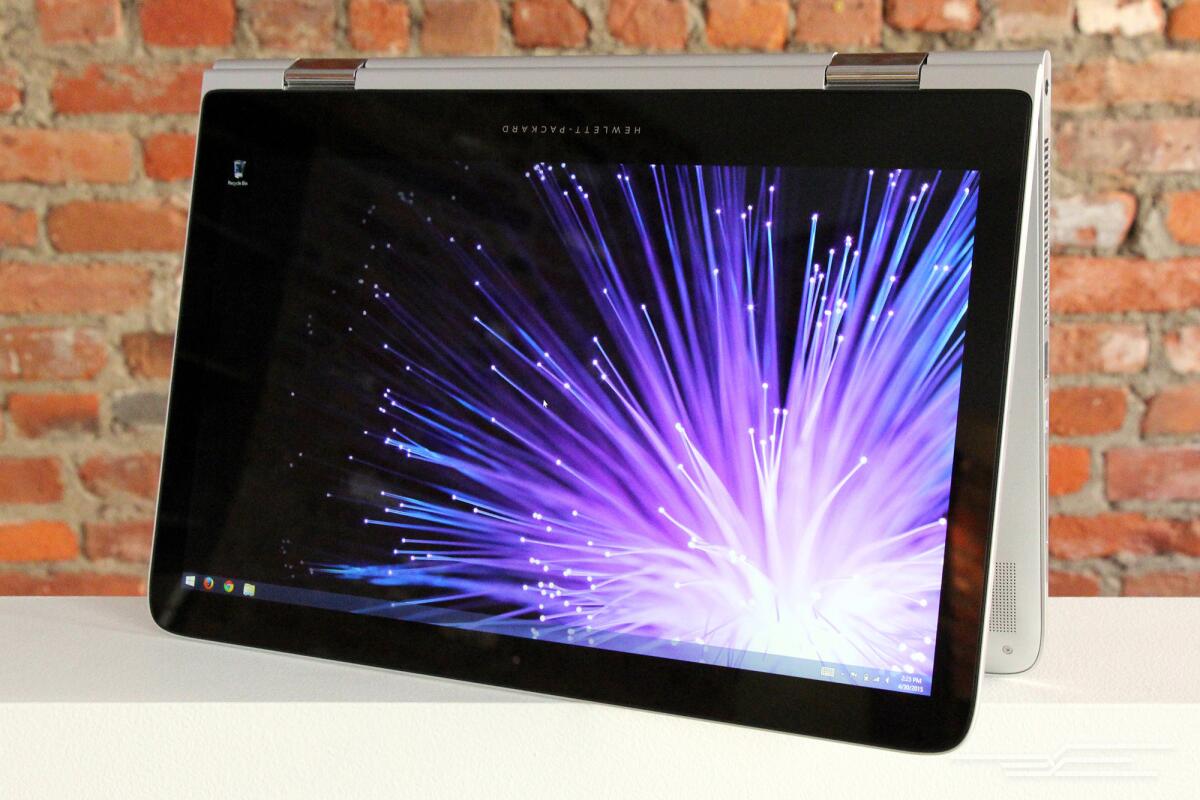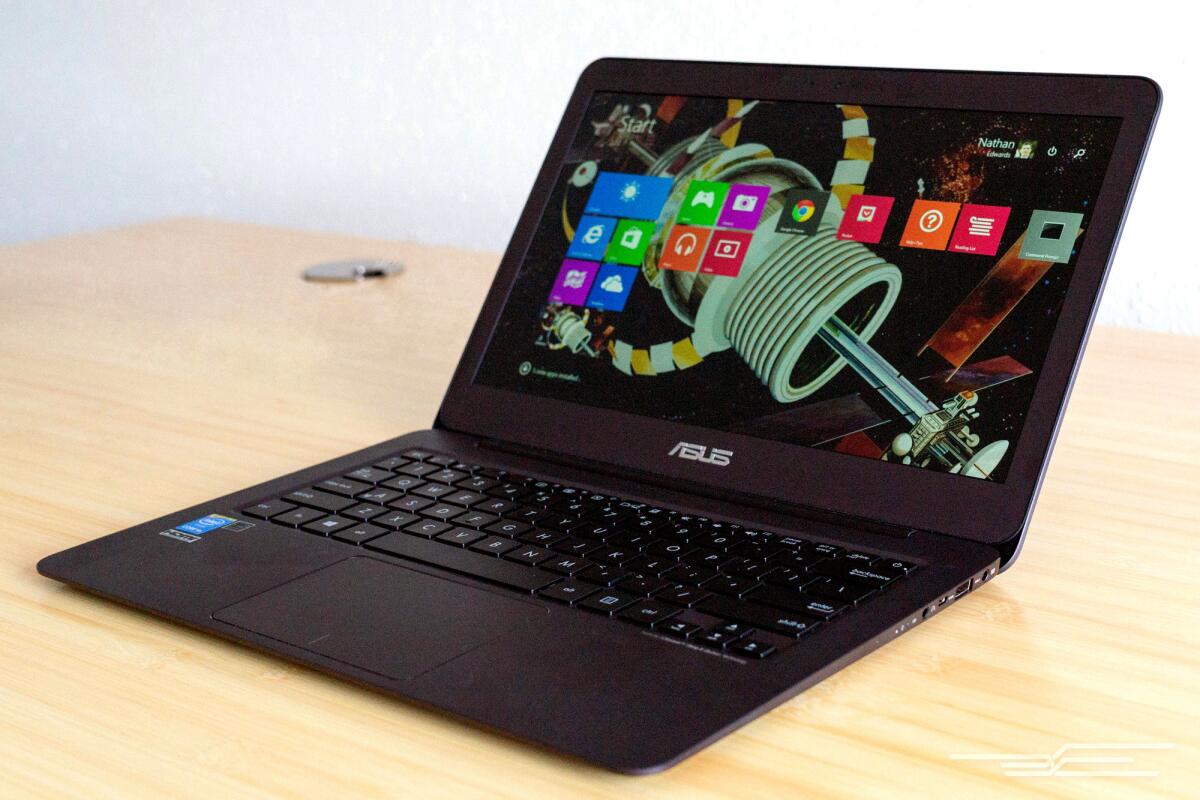Tech review: The best ultrabooks
- Share via
This post was done in partnership with The Wirecutter, a buyer’s guide to the best technology.
The $1,100 Dell XPS 13 is the best Windows ultrabook for most people because it has a big, beautiful screen, the longest battery life of any Windows ultrabook, a great keyboard, and a decent trackpad. Above all, it's the smallest, lightest, best-designed ultrabook we've tested. We came to this conclusion after 70 hours of research and testing with seven different ultrabooks.
Who is this product for?
Ultrabooks are best for people who need a super-portable, long-lasting laptop and don't mind paying a premium for it. They're overkill if you just want something you can leave on a desk and use for a couple of hours after work. The ideal ultrabook has enough processing power to get work done and sufficient battery life to survive a cross-country flight, while still being slim and light enough to go anywhere.
Our pick

The Dell XPS 13 (top) has the same screen size as the 13-inch MacBook Air, but a higher screen resolution and a much smaller body.
The Dell XPS 13 (top) has the same screen size as the 13-inch MacBook Air, but a higher screen resolution and a much smaller body.
Thinner and lighter than the competition, the $1,100 Dell XPS 13 offers the best battery life of any Windows ultrabook, as well as a great screen, a nice keyboard and a good trackpad — it's simply the most machine in the smallest package you can get.
The XPS 13 packs an Intel Core i5-5200U processor, 8 GB of RAM, a 256 GB solid-state drive, and a stunning 13.3-inch 1080p display in a laptop barely larger than the 11-inch MacBook Air. Its matte display uses IPS technology to provide superior viewing angles, and its tiny 5.2-millimeter bezel makes it especially immersive. But the webcam is placed in the bottom-left edge of the screen, so the default view is up your left nostril. In CNET's battery drain test, the XPS 13 lasted 12 hours, 6 minutes, compared with the 2014 MacBook Air's 16 hours, 26 minutes.
The new Dell XPS 13 does get warm on the bottom, especially if you block the vents in any way, but it doesn't get hot enough to be uncomfortable or severely affect performance.
The runner-up pick

The 360-degree hinge of the HP x360 Spectre x360 allows the laptop to flip around into tent mode.
The 360-degree hinge of the HP x360 Spectre x360 allows the laptop to flip around into tent mode.
If our main pick is sold out or if you want a convertible, backflipping ultrabook — and if you're willing to put up with a larger, heavier laptop — you should get the $1,000 HP Spectre x360. Specifically, choose the configuration with a 1080p touch-screen, an Intel Core i5-5200U processor, 8 GB of RAM and a 256 GB solid-state drive.
This HP ultrabook provides the same specs as our top pick for less money, and it has a touch-screen, a webcam in the right place and an HDMI port, unlike the Dell. But its keyboard is mushy and has an annoying backlight, its trackpad is unnecessarily wide, and its hinge is loose and wobbly.
A budget option

If you are on a budget, the Asus ZenBook UX305 is a great ultrabook.
If you are on a budget, the Asus ZenBook UX305 is a great ultrabook.
If your budget is limited, we recommend the $700 Asus ZenBook UX305. Inexpensive, slim and light, this model offers great battery life, a decent keyboard, a reliable trackpad and plenty of memory at its price range. It's the best ultrabook we've found for anywhere near its price — you have to spend $200 to $400 more to get a better one. We recommend the $700 UX305FA-ASM1 configuration with a 13.3-inch 1080p screen, an Intel Core M-5Y10 processor, 8 GB of RAM and a 256 GB solid-state drive.
The downside? The UX305 runs on a slower, Core M processor and carries a last-generation 802.11n Wi-Fi card. It also lacks a few amenities, such as a touch-screen and a backlit keyboard. But those are worthwhile sacrifices if you need a good, cheap Windows ultrabook.
In closing
The $1,100 Dell XPS 13 is the top ultrabook for Windows users because it offers a thin and light design plus excellent battery life. The XPS 13's comfortable keyboard, good track pad, brilliant screen and reasonable price make it the best option for getting work done in the office or on the go.
This guide may have been updated. To see the current recommendation, please go to TheWirecutter.com. The Wirecutter's extensive research and testing is supported by a small commission from the purchases made by its readers.
Inside the business of entertainment
The Wide Shot brings you news, analysis and insights on everything from streaming wars to production — and what it all means for the future.
You may occasionally receive promotional content from the Los Angeles Times.








